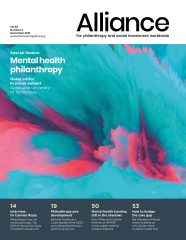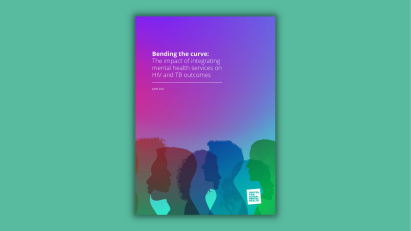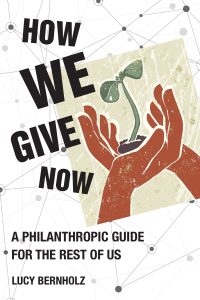Against a backdrop of existing social and economic inequalities, the global Covid pandemic has exacerbated mental health problems for the most vulnerable.
Globally, those suffering from the impact of war, extreme poverty, famine and climate change are those who suffer most acutely, both materially and psychologically. As with so many other issues, it is therefore the most vulnerable people and communities who should be at the forefront of philanthropy’s response.
But for too long, and for too many people, that has not been the case.
Could the Covid pandemic be the moment to crystallise change both in the scale and focus of funding for mental health around the world?
This issue of Alliance explores the present state of philanthropy for mental health (who is doing what and where the gaps are), the intersections with other issues, the factors which have limited mental health philanthropy and the steps that are needed to bring philanthropists together to make common cause in the area. Guest edited by Krystian Seibert, Centre for Social Impact, Swinburne University Australia and chair, Mental Health First Aid, Australia.





















